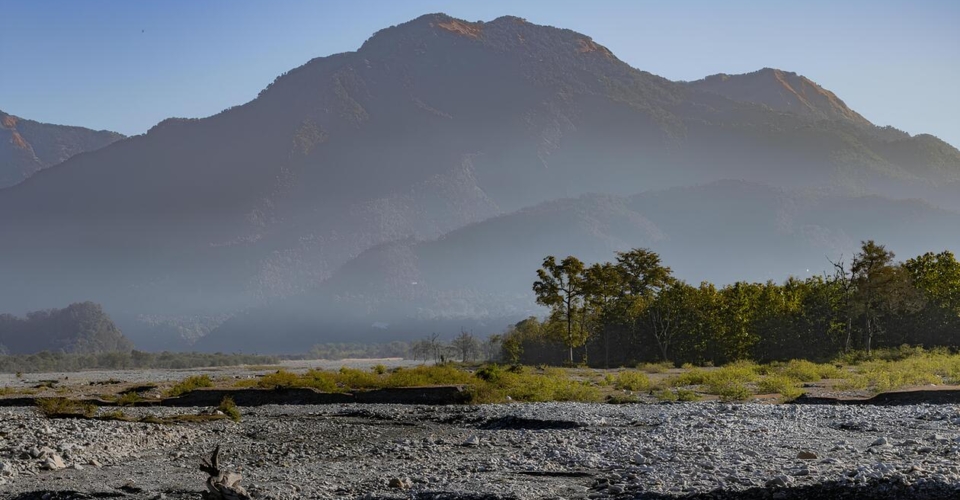
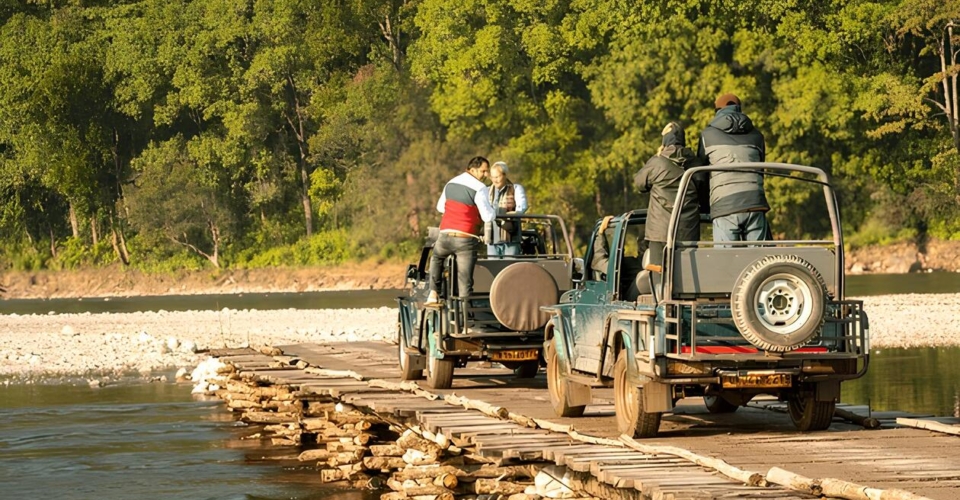
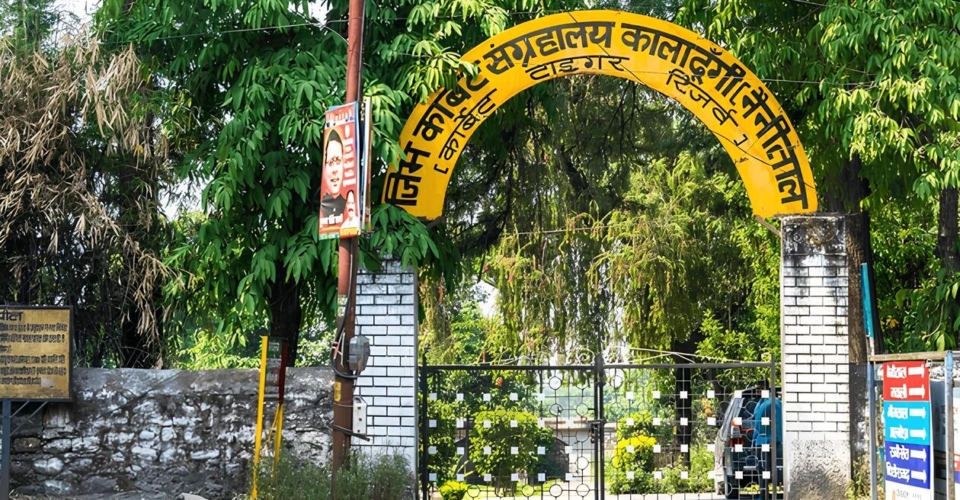
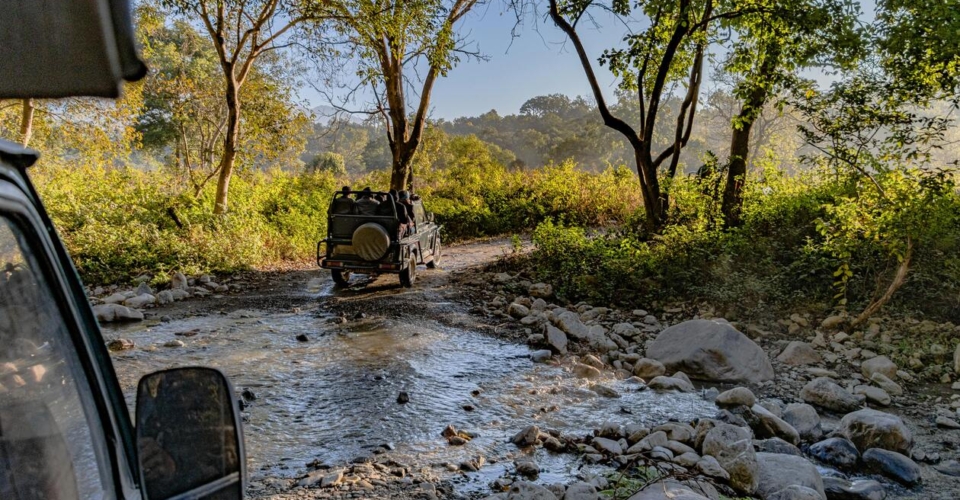
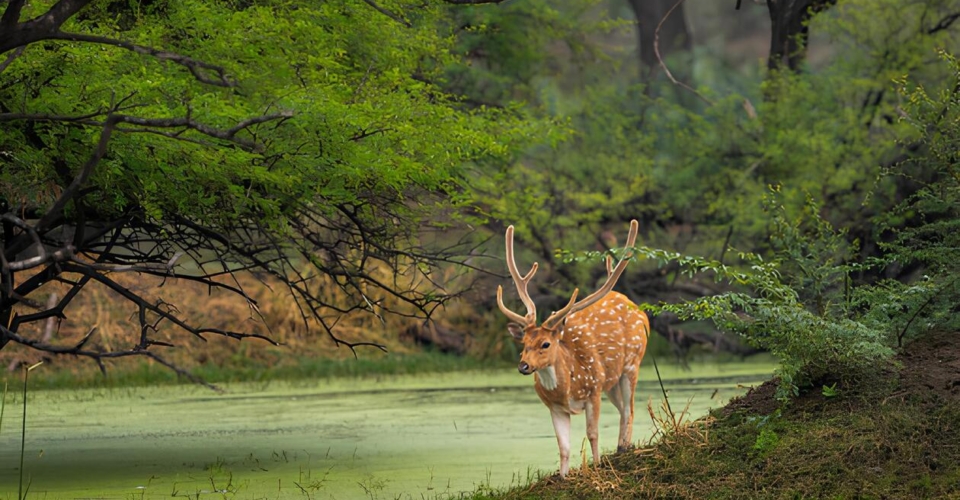
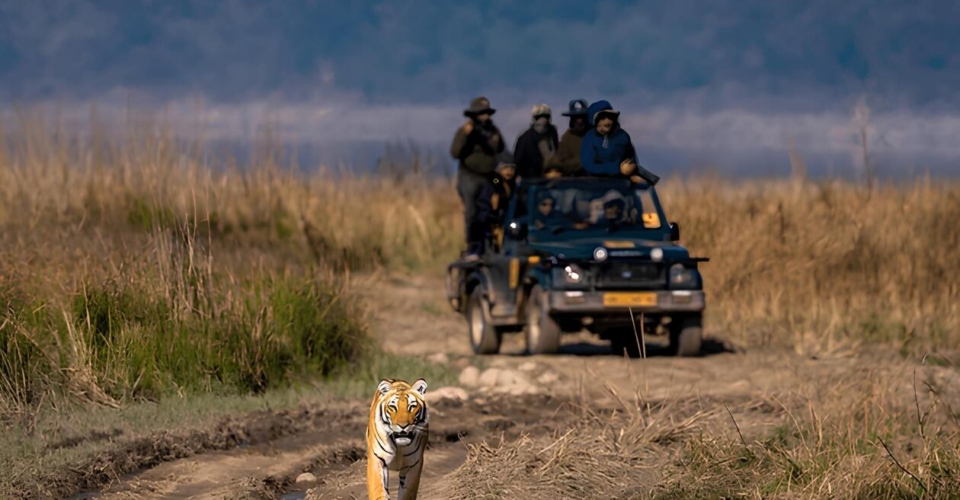
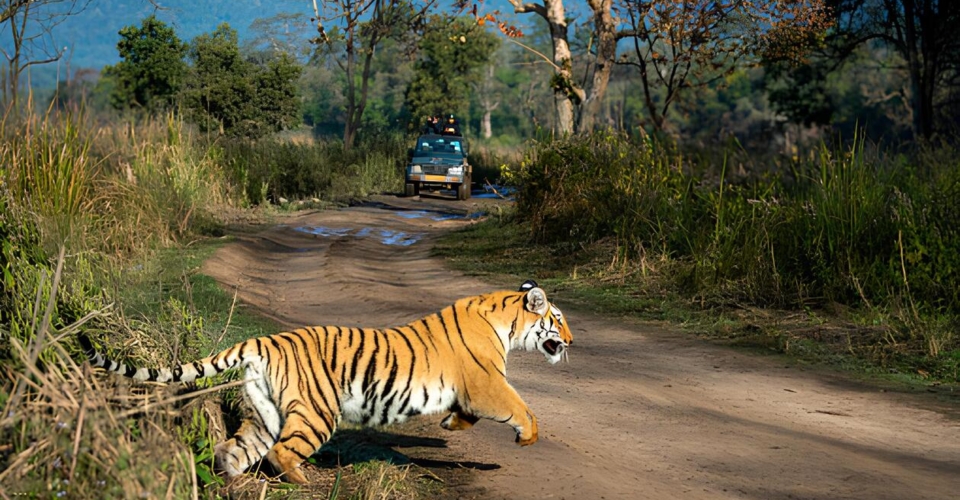
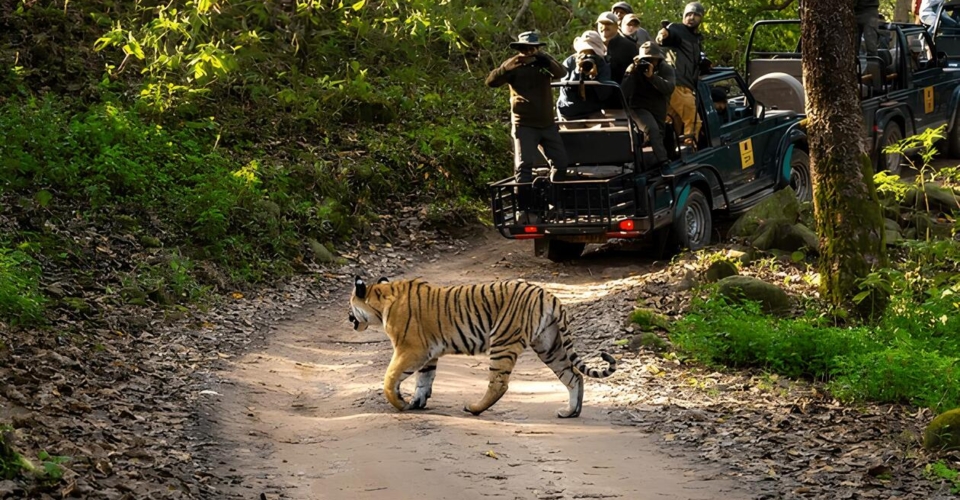
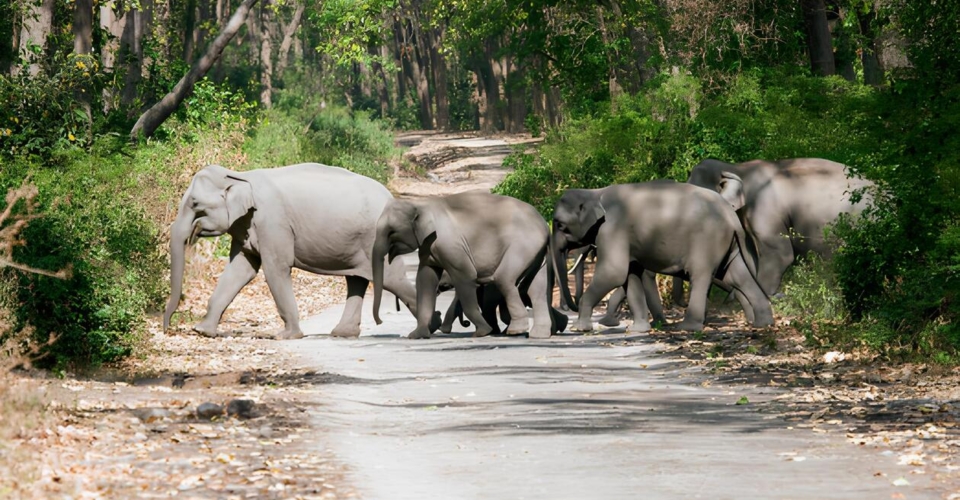
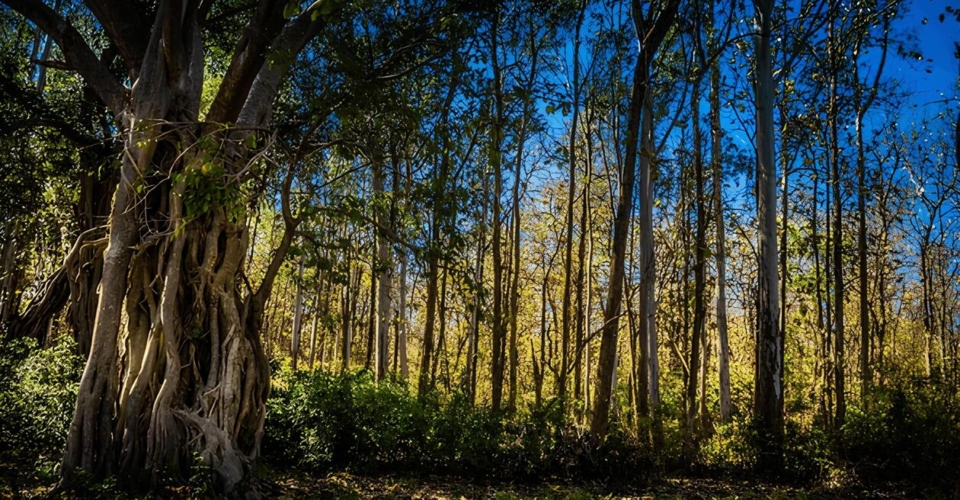
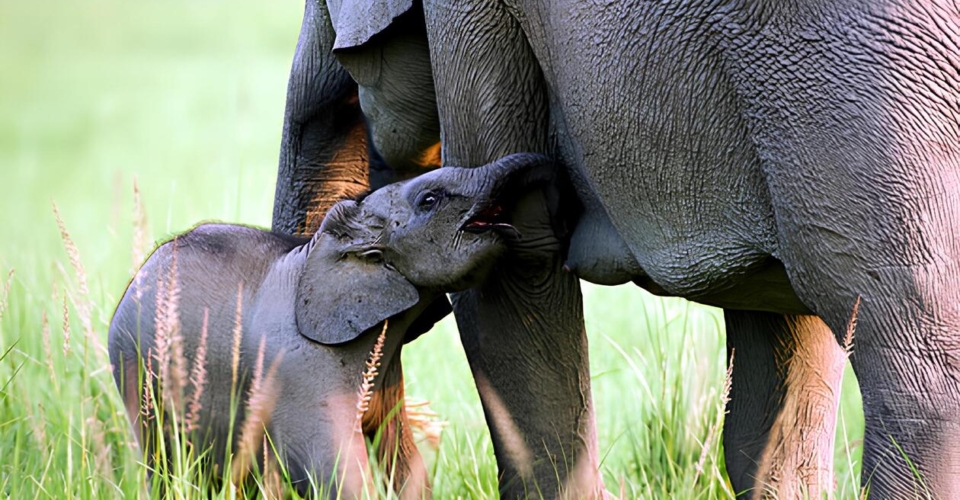
About Corbett Location – The Vacation Holidays
Nestled in the foothills of the mighty Himalayas, Jim Corbett National Park is one of India’s most celebrated wildlife destinations. Located in the serene state of Uttarakhand, this beautiful park is a sanctuary for nature lovers and adventure enthusiasts alike. Known for its rich biodiversity and lush landscapes, Corbett offers a truly immersive experience in the wild.
At The Vacation Holidays, we provide curated travel packages to Jim Corbett that bring you closer to nature while offering comfort and luxury. Whether you’re a wildlife enthusiast hoping to spot the majestic Tiger or simply seeking a peaceful retreat surrounded by nature’s beauty, Corbett is the ideal destination.
The park covers a vast area, with a variety of flora and fauna to explore. From the dense forests to the shimmering river beds, every corner of Corbett showcases the natural charm of this region. Visitors can enjoy safaris, bird watching, nature walks, and more, all while being surrounded by the peaceful atmosphere of the park.
Our Corbett packages are designed to offer a seamless experience, with comfortable accommodations, knowledgeable guides, and well-planned itineraries. You can also enjoy a range of activities, from thrilling jeep safaris to serene boat rides on the Kosi River.
With The Vacation Holidays, your trip to Corbett will be unforgettable. Explore the untamed beauty of this national park and immerse yourself in the wildlife haven that Jim Corbett truly is. Let us plan your perfect getaway today!
History & Mythology
Corbett, a name that resonates with nature enthusiasts and wildlife lovers alike, is most famously associated with Jim Corbett National Park, one of India’s oldest and most celebrated wildlife reserves. Located in the foothills of the Himalayas in Uttarakhand, Corbett has a rich historical and mythological legacy that adds to its charm and allure.
The region’s connection to history is deeply rooted in the colonial era, with Jim Corbett himself playing a pivotal role in its establishment. Born in 1875, Corbett was a legendary hunter, conservationist, and author. His experiences with the wild and his encounters with man-eating tigers, including the infamous Champawat Tiger, led him to become one of the earliest proponents of wildlife conservation in India. In 1936, Corbett National Park was established, originally named the “Hailey National Park” in honor of the then Governor of the United Provinces. In 1957, it was renamed after Jim Corbett to honor his contribution to the preservation of wildlife.
Beyond the historical aspects, the mythology surrounding Corbett and its surrounding regions is also fascinating. The area is steeped in ancient Indian folklore, particularly linked to the Ramayana, one of the two great Indian epics. According to local legends, the area is believed to be the home of Lord Rama during his exile, and many of the forested regions are associated with various mythological tales. Some temples in the area, like the Sita Mandap, are said to have been places where Sita, Lord Rama’s wife, meditated during their exile.
The lush forests, diverse wildlife, and rich mythology make Corbett a destination where nature and history come together, offering a glimpse into both the past and the wild wonders of the present.
Corbett’s weather and climate:
Binsar, a serene hill station nestled in the Kumaon region of Uttarakhand, is known for its lush forests, panoramic Himalayan views, and the Binsar Wildlife Sanctuary. Located at an altitude of around 2,420 meters (7,999 feet), it offers a tranquil escape for nature lovers and trekkers. Reaching Binsar requires a combination of transport modes depending on your starting point.
Nearest Airport: Pantnagar Airport (PGH)
Distance from Binsar: Approx. 152 km
Travel Time: 4.5–5.5 hours by road
Connectivity: Pantnagar Airport has limited commercial flights, mostly from Delhi.
From the Airport: Taxis are available for hire to Binsar or to Kathgodam railway station for onward travel.
Alternative Airport: Indira Gandhi International Airport (Delhi)
Distance: Approx. 380 km
Ideal for international or out-of-state travelers. From Delhi, one can travel by train or car to Binsar.
Nearest Railway Station: Kathgodam Railway Station (KGM)
Distance from Binsar: Approx. 110 km
Travel Time: 3.5–4.5 hours by road
Major Trains to Kathgodam:
Ranikhet Express (from Delhi)
Shatabdi Express (from Delhi)
Bagh Express (from Howrah/Kolkata)
From Kathgodam:
Taxis and shared cabs are available for hire to Binsar.
Local buses also operate to Almora (33 km from Binsar), from where you can hire a cab.
Binsar is well connected by road to major cities in Uttarakhand and northern India.
From Delhi:
Distance: Approx. 380 km
Route: Delhi – Hapur – Moradabad – Rampur – Rudrapur – Haldwani – Kathgodam – Almora – Binsar
Travel Time: 10–12 hours
Mode: Self-drive, private cab, or government/private buses to Almora (followed by a taxi to Binsar)
From Nainital:
Distance: 90 km
Travel Time: 3–4 hours
From Almora:
Distance: 33 km
Travel Time: 1.5 hours
Binsar is accessed through a forest gate (entry fee applicable), followed by a scenic drive to the forest rest house or other accommodations.
Private Taxis: Most convenient for families and groups, easily available from Kathgodam or Almora.
Shared Cabs/Buses: Budget-friendly option, especially from Almora.
Entry Fee: If entering the Binsar Wildlife Sanctuary area (where most hotels are), an entry fee is charged per person and vehicle.
Best Time to Travel: March to June and September to November (avoid monsoon and heavy snow months unless prepared).
Jim Corbett National Park, nestled in the foothills of the Himalayas, is not only rich in wildlife but also well-equipped with a variety of facilities to enhance the experience of tourists, researchers, and nature enthusiasts. Here’s a breakdown of the key facilities available in and around the park:
Corbett offers a range of lodging options for visitors:
Forest Rest Houses (FRHs): Located within the park’s core zones (like Dhikala, Bijrani, Jhirna, etc.). These are government-run, basic but scenic accommodations that offer a unique stay close to wildlife.
Resorts and Hotels: Outside the park, particularly in areas like Ramnagar, there are numerous private resorts ranging from budget to luxury options.
Eco Lodges and Camps: For a more sustainable and immersive experience, eco-friendly lodges and tents are available.
Visitors can explore the park through:
Jeep Safaris: The most popular option, conducted in designated zones with trained guides and drivers.
Canter Safaris: Available in the Dhikala zone, ideal for group tours.
Elephant Safaris: Offered in limited areas and subject to forest department rules (availability varies by season).
Online Safari Booking: The Uttarakhand Forest Department facilitates online bookings for entry permits and vehicle reservations.
Corbett Museum (Kaladhungi): Dedicated to Jim Corbett, showcasing his life and contributions to wildlife conservation.
Nature Interpretation Center (Dhangarhi Gate): Offers educational exhibits on the park’s flora and fauna.
Wildlife Film Shows: Occasionally organized to spread awareness about conservation.
Professional guides and naturalists are available to accompany visitors on safaris, offering expert insight into wildlife tracking, birdwatching, and the ecosystem.
Restaurants in Resorts: Serve a mix of Indian and continental cuisine.
Canteens in FRHs: Basic meal services available at key forest lodges like Dhikala.
Local Eateries: In Ramnagar and nearby towns, providing local Kumaoni cuisine and snacks.
Park Rangers and Patrol Units: Regularly monitor the area to ensure visitor safety.
First-Aid and Medical Help: Available at some rest houses and nearby hospitals in Ramnagar.
Emergency Contact Services: Posted at major entry gates.
Private Taxis and Local Buses: Available from Ramnagar to various entry gates.
Rail and Road Access: Ramnagar is well-connected via train and road from major cities like Delhi, Nainital, and Dehradun.
Mobile Network: Limited inside the core zones but fairly good in buffer and surrounding areas.
Wi-Fi: Available in most private resorts and some forest rest houses.
Bird Watching: With over 600 species, it’s a paradise for bird lovers.
Nature Walks and Treks: Available in buffer zones under guidance.
River Rafting and Fishing: Permitted seasonally in Kosi River (outside park boundaries).
Photography Tours: Specialized packages available for wildlife photographers.
10 must-visit attractions Jim Corbett National Park:
Things to Do and Fun Facts in Corbett
Fun Fact: Corbett is India’s first national park and was established in 1936 to protect the Bengal tiger.
